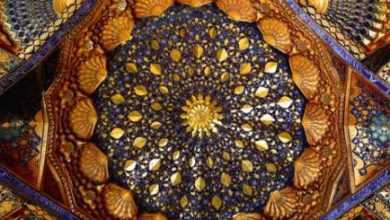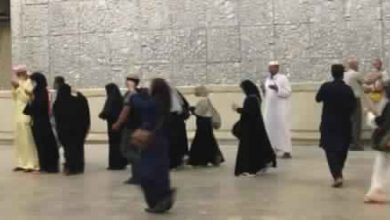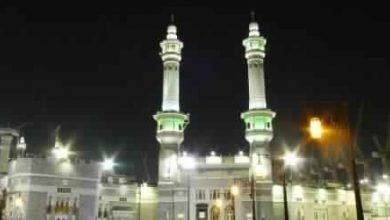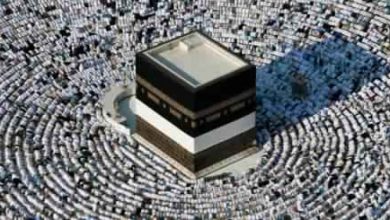THE ESSENCE OF HAJJ – PART 7
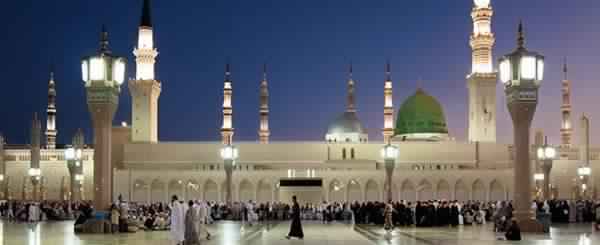
Tawaf Idhafa and back to Mina
After casting their stones, pilgrims must perform the sacrifice. When Ibrahim AS attempted to slaughter his son, he found Allah had placed a ram there to be slaughtered instead. Pilgrims should thus slaughter livestock (sheep, goat, cow or camel) or pay for it to be done in their names.
At this point, pilgrims trim or shave (men only) their hair and remove their ihram clothes. Many will then proceed to Mecca to perform tawaf and sai’ee again, this time in ordinary clothes.
Although only a few days have passed since your previous tawaf and sai’ee, you will find that everything has changed. Insha Allah, you have come through the other side as a new person, with new goals and a new resolve in life. The previous days of broken sleep, constant worship, sensory overload, and deprivation from dunia will seem like a dream.
Then it is recommended to return to Mina for Eid and the two days following it (yaumul tashriq). Again, the routine in Mina is unstructured. While technically, your hajj has been completed and you are free from sins, the time in Mina is somewhat a transitory point before you ease back into the clutches of dunia.
During the remainder time in Mina, it is highly recommended to repeat the rami (throwing of the stones at Jamarat), this time with all three pillars, between Zuhr and Maghrib for the next two succeeding days.
On these days, you will insha Allah find how reduced your attachment is to dunia. The rough sleeping arrangements and the long queues at the bathroom will no longer bother you. You would have reached a higher plane of spiritual awareness, and the clutches of dunia would appear to be rolling away from you. Savour these last few hours, and reflect on your personal growth and which direction you would like to continue in your life when the hajj is officially over.
Tawaf Widha
How you spend your time after that depends on your hajj itinerary. If you are back in Mekah, make sure to continue frequenting Masjid Al Haram. Your sins may be forgiven, but now you will need to accumulate good deeds to fuel your soul going forward.
Before you depart from Mekah, the final, and perhaps most difficult act, will be the farewell tawaf. You have come one full circle, and it is now time to go. For many, this is a heart wrenching moment to say goodbye to the Ka’bah, which would have become a familiar and comforting cornerstone of the time in Mekah. Perform the farewell tawaf at the last practicable moment, because once done, it is not recommended to intentionally stay on for salat at the Haram. The etiquette is to say your farewell to the Ka’bah and walk away, and these will probably be the most difficult steps in your journey.
Each hujjaj will have a different story to tell, and yours will also be unique. Just like life in general, nothing is forever. You will come home to your daily routine and insha Allah, everything will be different even though nothing has changed. You will perceive things differently. Your challenge now was to stay afloat, hold on to the rope of Allah and not let yourself be carried away by dunia again, and to hold on to that pledge until your final return to Allah.
Reflect on the Companions, what they went through and what they accomplished. How much obedience do we have compared to theirs? We should finish hajj in a state of tears and fear.
Was your hajj accepted? Scholars suggest looking at your actions from start to finish. Did you get angry, argue or fight during this journey? Were you lazy and sloppy in your worship? If you are doing this in the time of hajj, what does this mean? If we cannot be in a state of obedience to Allah while in ihram, then what about when we are in the normal world? It is a test from Allah to us. This is why we should prepare ourselves, and prevent ourselves from going back to the same person we were before.
Other issues
Now that you understand the significance of an accepted hajj, you need to make sure that your surroundings will support you achieve that goal.
Allah is pure and only accepts the pure. Your hajj will not be accepted if it is financed from impure money. For example, if your hajj expenses were paid through bribes, kickbacks or through money obtained from haram sources.
Return any borrowed items to their owner. Repay your debts especially if they are loans from other individuals. There are different rules relating to long term loans such as cars and house mortgages, please check with your ustaz on the ruling.
Before you leave, purify your intention to make the hajj purely for the sake of Allah. Remember that this is not a vacation, but a place of worship. Return your heart to Allah, and purely for Allah, and cut off any other attachments to people, belongings, money or status.
Make tawbah (repentance) even before you leave for your trip. Ask for forgiveness from others, because even if Allah forgives you for your sins against Him (such as not fasting), those whom you have wronged can still make a claim against you on the Day of Judgment and demand recompense through the transfer of your good deeds to them.
Try to find the right companion to accompany you on this journey: one who is serious, focused and understands the magnitude of this journey. You need someone to both be your mirror in Islam and to keep you in check.
Financially, the early Muslims allocated a small budget for themselves and a huge budget for others. When you are generous with others, Allah will be generous with you. You will see many poor people during the hajj, those who maybe spent their life savings on the trip but have a restricted budget for daily expenses. Allocate a generous part of your spending money on them. Spend less on your shopping and more on supporting your fellow guests of Allah, for this will please Allah tremendously.

